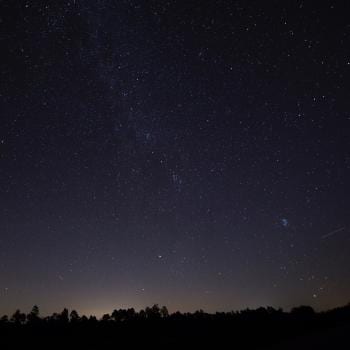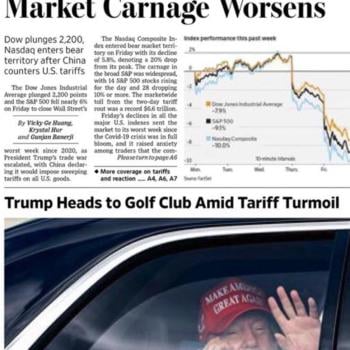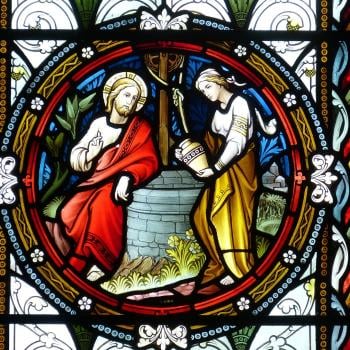I also hope that it starts a conversation among readers who are used to the kind of consensus history I've already mentioned. If Doris Kearns Goodwin and Stephen Ambrose have shaped your vision of American history, what does this swim in the dark currents with monsters do for you? How does it change you?
I'd love for political progressives, including the hardy souls who have been occupying Wall Street and other sites of power, to talk about the book and what it tells us about the history of subversion and dissent. Tales of monsters are political tales, often-subversive tales. It's not an accident that a few weeks ago protesters in NYC dressed as zombies to point out the mindlessness of corporations, their voracious hunger for more.
Name one person—or group of people—you hope reads this book. Why?
I'd like Wes Craven to read this book. Fanboy alert. He is my favorite of the great horror auteurs because he has the most complex vision of the monster as metonym for human experience and history out there. Here's a guy who starts his career as a literature professor, then makes one of the most disturbing films ever made in Last House on the Left about Vietnam and the falsity of American visions of home and family. In the Reagan era, he creates a dream demon that haunts the quiet suburban streets. Then he creates postmodern horror.
If he read it and liked it, it would make my year. Maybe my lifetime.
Do you expect this book to change anyone's mind? About what?
Yeah, well not really. Let me complicate that though. Books work slowly and deftly. We are the books we have read over a lifetime in some ways and I think they germinate in us even when we, to some degree, forget them. So I think that it's a work that might leaven the loaf. It gets the thoughtless reactionary to examine the monsters of our own history instead of waving an "Obama is the antichrist" sign.
Okay, maybe those people don't even read. But the most revolutionary books of all time have faced enormous opposition, often been hugely unpopular and even sometimes simply been made unavailable by various kinds of tyrants, either dictators or simply grumpy librarians.
The coolest review I've gotten so far was the coolest for this reason: the guy said the book made him want to go back and watch horror films from different eras and re-experience them in a new way. Did I change his mind, revolutionize his life? Not really. But I geeked out with him in print and got him to rethink some things we both love.
How about the young woman who became aware of the horrors of lynching and the Vietnam war through reading the book. It was revolutionary for her but it would be hubris for me to talk about how I had changed her mind. She was open to learning something new and did.
What was the hardest thing about writing this book?
I made the decision to unveil to the reader the most gruesome and macabre aspects of American history. There are passages in the book that describe some of the most horrific things that one human being can do to another.
Sometimes this was horrifying for me and I urge readers to always be careful when they think an author is being sensationalistic or lurid. Sometimes we write these things because we feel compelled to tell gloomy truths while at the same time it's like taking part in some kind of monstrous birth, giving something renewed life in a way that makes you feel like it's Mary Shelley's "hideous progeny" that is now going to walk the earth, out of control. Your writing desk becomes, to again quote Shelley, a "filthy workshop of creation," a mad scientist's lab.
I also had a lot of anxiety about my nerdism coming out so much that it made the serious aspect of the book seem ludicrous. I'm satisfied I didn't do that though and early reviews have tended to talk about this interesting balance between horror, nerdism, and historical exploration that the book achieves.
Which chapter was the hardest to write? And the easiest to write?
They were all hard. Writing is always like strangling something that is trying to strangle you and you have to have something wrong with you, like I do, to enjoy it.
If there was one easy chapter, it was the introduction. I was able to say something about history, and about historians, I'd always wanted to say. And I got to do some shout-outs to the horror community, which meant a lot to me.
Name American history's scariest monster.
Satan. He's the monster too many Americans believe in and who often fuels their fears of other creatures of the night. He's why The Exorcist still frightens after forty years and why religious horror narratives have never gone away since then. Sadly, more Americans believe in the Devil than truly believe in moral evil, in my opinion.
Religious narratives of horror have obviously become important in American culture. Since The Exorcist, the themes of Antichrist, demon-possession, and apocalyptic imaginings have become key to the genre. They are even making a sequel to The Last Exorcism, which I guess will have to be called "No, really, this is the Last Exorcism." And, of course, it won't be.




